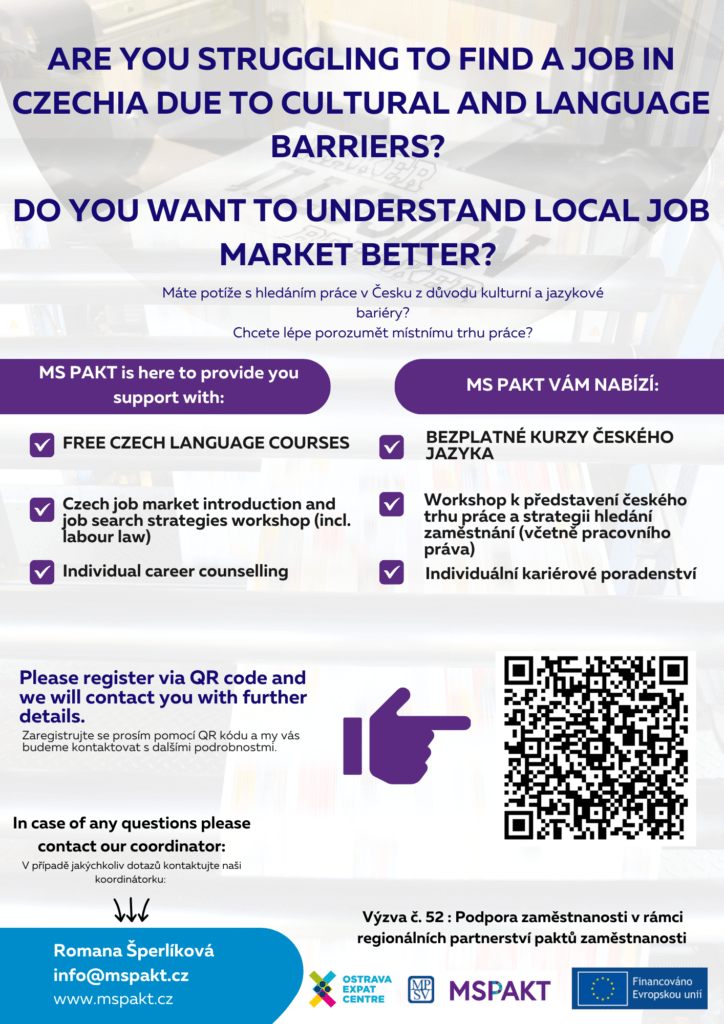When working for an international company your mother tongue or some international language may be able to cover the whole day. However, for going shopping, taking part in public life and making friends it is useful to learn some. This will win great respect of the local people who can be very supportive when they realise you have tried to learn at least a few phrases. The tried-and-tested approach is to find good friends to speak with. Although Czech is known not to be the easiest language to learn, with such an approach many people have become very good in Czech even within a year!
Some workplaces offer language courses for their employees. Ask your manager or HR if it is also the case for your company. No matter what the result, you can also take advantage of free Czech lessons organized at the Centre for Integration of Foreigners.
There are also plenty of language schools offering Czech courses: summer school, short and intensive courses, half- to one-year-long and slow-paced, individual or group, and beginner to advanced, as well as many free online practice materials! In addition to language courses in a classroom you may make use of a number of free online course materials and resources. Watching Czech TV as a “background“ sound or watching the same film several times with, and later without, the subtitles works almost like a miracle. As far as kids, until the age of 11 it is enough if they can freely play with Czech kids. After a few months of a “silent period” the kids will acquire the language naturally without any special efforts or formal teaching. The bonus is that bilingual and trilingual people are able to learn more languages later. So what are the options?


